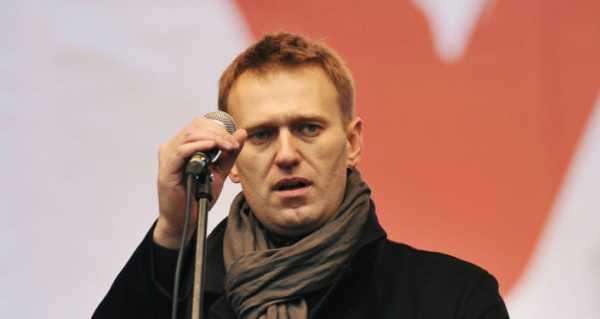
Russian opposition activist Alexei Navalny was hospitalised in August after falling seriously ill while on a domestic flight and then transferred to a German clinic, in accordance with his family’s wishes. Germany claimed that the blogger was “poisoned” with a substance from the Novichok nerve agent group, but declined to provide evidence of this.
Building a new “wall” between Russia and the West over the Navalny scandal will not be productive, Wolfgang Ischinger, head of the Munich security conference, said on Friday, as broadcasted by N24.
Ischinger added that Europe should not call for a “full blockade of Russia” as that would not produce any results.

Wolfgang Ischinger, Chairmann of the Munich Security Conference, speaks during the International Conference on Security Policy
However, he also said that it would be “unacceptable” for Germany’s European partners to exclude Nord Stream 2 from discussions related to the blogger’s alleged poisoning.
“If we are putting on the table the options that are potentially acceptable for Europe, from diplomatic steps to individual sanctions, the German government cannot tell its EU partners: we will take all possible steps, but Nord Stream 2 must stay. I don’t think it would be acceptable to many partners,” Ischinger argued, pointing out that he does not favour the cassation of the project.
What Happened to Russia’s Most Famous Opposition Blogger and Why it Matters
Alexei Navalny had fallen gravely ill while on a Russian domestic flight and was hospitalised in the city of Omsk, where doctors found no traces of poison in his blood. However, he was then transferred to the German clinic Charite, where medics claimed to detect traces of a Novichok-like substance in his body.
The German government then insisted, citing evidence from the doctors, that Navalny was poisoned with a nerve agent. Berlin argues that this was confirmed by laboratories in France and Sweden but declined to provide evidence for that, despite Moscow’s requests, stressing that this information is classified.
Navalny, who remained in a medical coma for some time, has since been discharged from the hospital. The doctors from Charite clinic insisted that long-term effects of his “severe poisoning” were unclear, but maintained that “complete recovery” was still possible.
Sanctions and Counter-Sanctions
Following the incident, the European Parliament passed a resolution demanding that Russia be targeted with new punitive sanctions in response to the alleged assassination attempt on the blogger. They also argued that the European Union should review its relations with Moscow and even question its participation in international forums. Some lawmakers, including German ones, insisted that the Nord Stream 2 gas pipeline project should be terminated.
Russian Foreign Ministry spokeswoman Maria called on Europe not to pre-emptively blame Moscow, or resort to “restrictive measures” and insisted that doing so would make the results of the destructive anti-Russian narrative “irreversible”.

Zakharova Holds Briefing in Sputnik’s Corporate Vest Jacket to Support Sputnik EstoniaLater, Russia expanded its European Union blacklist, prohibiting some EU citizens from entering Russia, in response to Brussels’ actions.
Moscow said that Russian police officers have been carrying out “an extensive range of investigative and law enforcement intelligence operations” in relation to the Navalny case. The Russian Interior Ministry also called upon Germany, France and other countries to share materials in relation to the incident, but so far, to no avail.
Nord Stream 2 Project is at Risk
Since Navalny’s incident, some German politicians, inlcuding Christian Democratic Union member Friedrich Merz, have been calling to halt a construction of Nord Stream 2 pipeline, an inter-European project set to deliver 55 billion cubic meters of Russian gas to Germany via pipelines under the Baltic sea annually. These calls have been strongly rejected by Russia and some other European lawmakers, but saw strong support from the White House. US President Donald Trump has never been a fan of the pipeline and recently reiterated his insistence that his European partners withdraw from the project.
This week, US State Secretary Mike Pompeo told the German media that the US is “building” the coalition to stop the project from being completed. So far, German Chancellor Angela Merkel has refused to support these calls.
From his part, Russian Foreign Minister Sergey Lavrov inisted that the completion of Nord Stream 2 should become a “point of honour” for Germany and slammed US attempts to “humiliate the European Union”.
Sourse: sputniknews.com






